Intense and sincere would be two words you could use to describe Ben Cullen.
Welcome to the new Human Stories series by TMS, where we get to know Hong Kong through its many different faces. This month, we’re speaking with Harsh Roopchand, the co-founder of 8 creATEive, The Pontiac and more.
Intense and sincere would be two words you could use to describe Ben Cullen. Or, for those who know him a bit more, Benny. It’s 3 p.m. in the afternoon in Hong Kong, and the Welsh expat had been up since 4:30 a.m. that same day, rowing to raise a million dollars for Movember.
Asked to dress in something that best represented him, Cullen rolled up to the interview spot dressed in a loud buttoned-up shirt. “It smells great in here,” he sniffs and exclaims.
Sat down, patiently waiting and observing while equipment was being tested, when asked how many interviews he had done in the past, Cullen responds, “I don’t know whether you know this part about me,” he pauses, “but I was working on TV for about six months, so I’m normally the one in that chair,” he says, gesturing toward the interviewer's seat.
A trip down memory lane
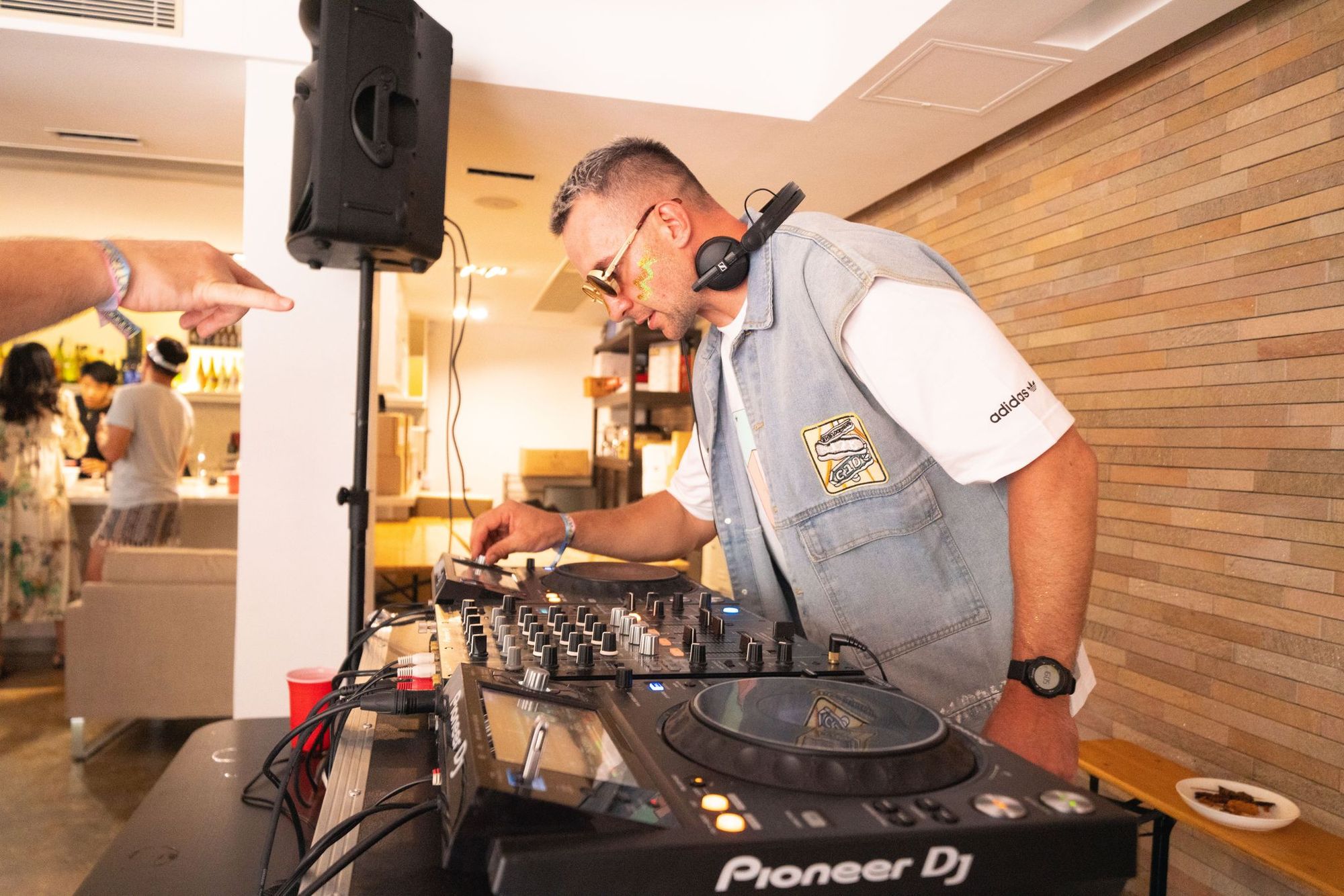
Originally from Wales, Cullen moved to Hong Kong because he was unable to extend his stay in Australia. “I used to play rugby, and I was living in Wales, which is my home country, and I got a call one day asking me do I want to go play rugby in Australia,” Cullen recalls. “So I moved to Brisbane to play for two seasons.”
In fact, Cullen ended up enjoying the way of life so much 15,000 kilometers away from home in the land down under that he says, “I did my farm work,” referencing the nearly three months of rural work demanded from working holiday visa holders who wished to extend their stays in the country. “It was … character building,” Cullen chuckles. “From there, it was difficult for me to stay in Australia. They don’t give out visas too easily, and my time was up. And I got offered to move to Hong Kong to play … that was just over seven years ago.”
Soon after arriving, he began a series of ventures – one being Got Balls?, an events company aimed to provide unforgettable and, as Cullen terms, “holy-shit moments” for people around Hong Kong. Pondering back to the origins of the venture, Cullen explains that the seed for Got Balls? was planted fittingly on a weekend junk boat party. While pitching a friend to be an MC at an event alongside his business partner, another fellow junker overheard the concept.
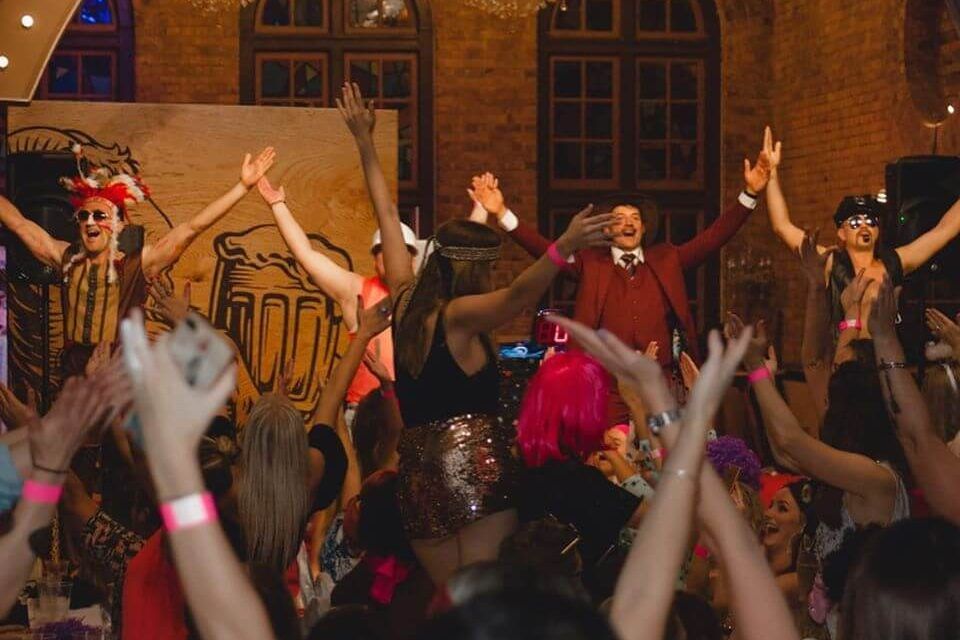
Having already experienced a similar events venture back in the UK, she had been wanting to do something similar in Hong Kong. So, in 2017, she and Cullen joined forces, and Got Balls? was born.
So how did the quad come up with the name? “I can’t remember how we got there or who’s idea it actually was,” Cullen admits, smiling. “None of us can remember how we got there. It’s not a good thing.”
In parallel, Cullen also started another venture around the same time, Rugbytots, which is a program teaching children in the city how to play rugby. When speaking of the children he coaches, a softer streak immediately appears. “I just love working with kids,” begins Cullen. “They give you an energy that you can't find anywhere else. You never know what they're going to say next. They can be brutal, they can be hilarious. They can be so loving as well.”
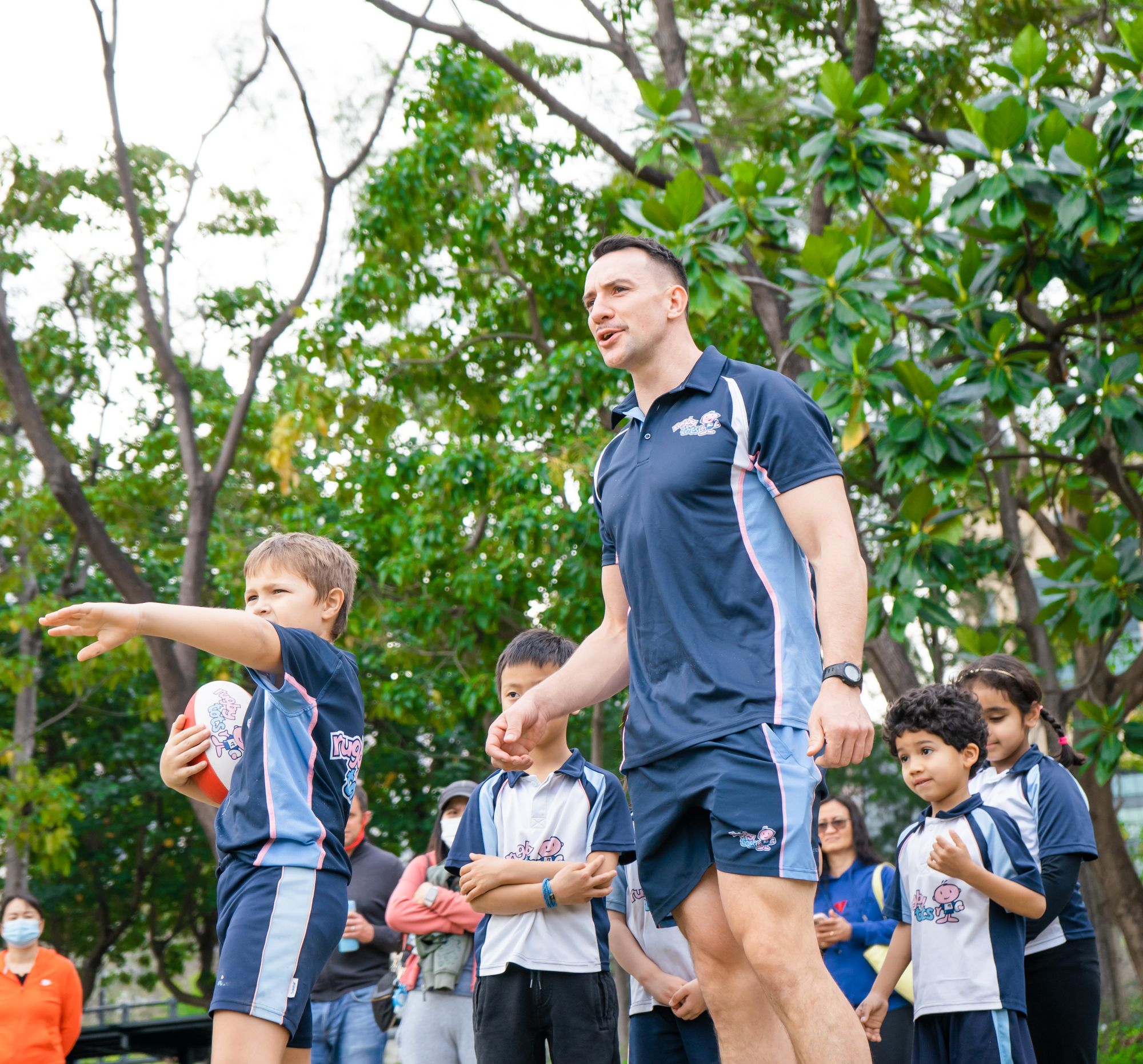
While Rugbytots today has drawn thousands of students and parents, the start, like for most entrepreneurs, was quiet and uncertain.
Speaking candidly on juggling the ventures, Cullen admits that the early days were quiet, and thus, managing the two wasn’t difficult. “Rugbytots started off with three or four kids in Victoria Park on a Saturday morning,” recalls Cullen. “And it took way longer than I thought it would to grow the business. In my head, I wanted it to be busy. We had these grand plans, but the reality is that … it took us a lot longer than I expected.”
Furthermore, having launched the business in a city like Hong Kong, one of the wealthiest regions in the world, whereby the average cost of employing a mid-level expat employee is among the most expensive globally, the self-doubt and insecurity Cullen felt in the broader context were pervasive. “You come to a city like Hong Kong, and you know, lots of people earn a lot of money, and there's like a lot of like title-driven culture here. … when I started that … I can't even tell you how much money I didn't have.
“I had nothing to figure out how to even buy food and whatnot. So living here with my friends who were, you know, being able to make money or whatever it may be, then it was hard not to feel inadequate and have self-doubt and things like that.”
Delving into the challenges of establishing Rugbytots, Cullen points out the need to manage expectations. “Specifically, trying to get parents to bring their 2-year-olds to play rugby when they’d never seen anything like it before made no sense to them,” he says. “So we had to convince parents to send their 2 to 5-year-olds to come to our program. So that was a challenge.”
With that, to try to change the narrative around the sport, in January 2017, soon after launching the business, Cullen, gathering inspiration from the business content he was consuming in his spare time, stood in front of a camera beaming and rounding up the highlights of the program.
Source: Rugbytots Hong Kong
“Through a huge amount of video content, we created this weekly content called Rugbytots TV,” recalled Cullen, “and I’d stand in front of a camera and say, ‘This is Coach Ben, welcome to episode one or two of Rugbytots TV,’ and then they would just push them out to mainly Facebook groups and just show parents how colorful and creative our program was.”
A conversation on mental health
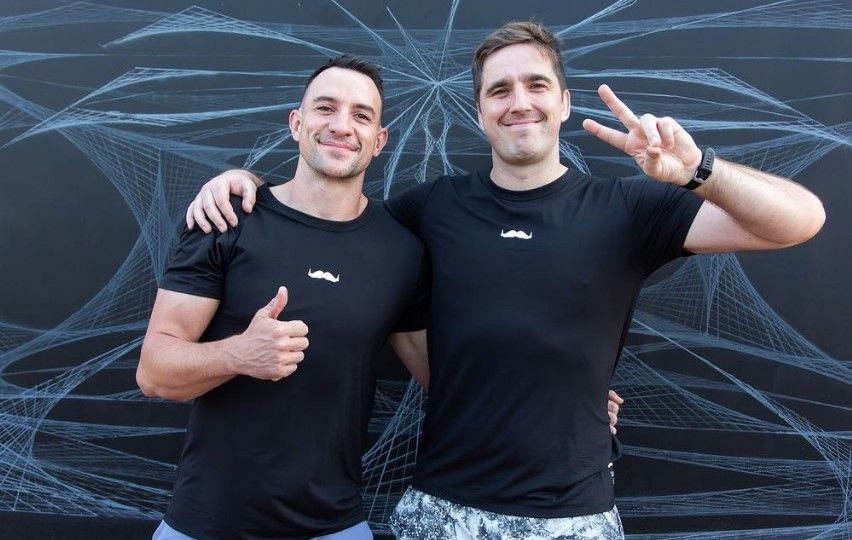
Revisiting Cullen’s interview over and over again, one characteristic becomes increasingly noticeable: his affect is incredibly matter-of-fact yet married and softened with empathy.
“I really struggled with negative self-talk when I was younger as a teenager,” Cullen admits. “I don't think I ever got bullied; I don't think I've ever had mental health issues, but I definitely suffered with a lot of self-confidence and negative self-talk.”
While, in many cases, both preventable and treatable, a ubiquitous misconception surrounding mental health struggles is that the solution is one-off and clean-cut. The reality, though, for many, is that it’s a continuous, conscious and relatively invisible battle.
And for Cullen, at 32 years old, having faith to prove his inner demons wrong is the key to containing the battle.
“Through doing things, whether it be going to the gym or reading or just committing to something, I think you grow confidence, and you can change the way you think and influence it,” he says. “You also have to believe that if your mindset is ‘This is just the way I am, and that's the way it is’ … even if you attack something with the belief that you can attack it, and even if you don't make it or whatever it may be, that's half the battle or maybe more than half the battle.”
Still, Cullen doesn’t think this is ever really done. “I don't think you ever actually get out of [the negative self-talk cycle].”
Broadening the topic to the conversations we have around mental health, especially coming from a semi-professional sports background, Cullen, who started off keeping everything in, now emphasizes the importance of dialogue. “I think it's important that people are open to talking, but also open to listening,” he says. “It’s not OK to tell anyone to toughen up anymore. Yeah … [there are] times where some people need to grit their teeth and get on with things, but that's not the answer anymore. So it's both. It's being able to open up and also being willing to receive information when someone is struggling.”
Passionate and determined to change the conversations around mental health, just like how he grabbed the camera to convince parents that rugby wasn’t what many feared, two years ago Cullen took to a rowing machine and rowed for three hours, raising HK$66,000 for Movember – an organization raising awareness around men’s health – specifically mental health, testicular cancer and prostate cancer. Last year, he did it again with the hopes of raising HK$1 million
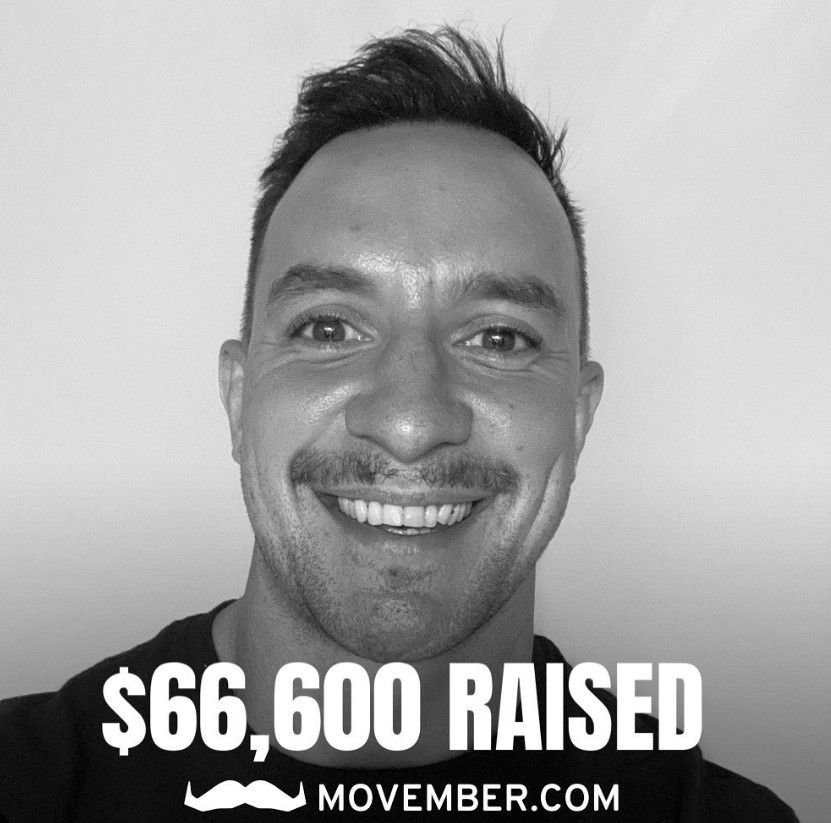
“Testicular cancer and prostate cancer are 100% treatable if caught early,” Cullen points out. “So it's about men checking themselves, going for tests, and doing it early and not avoiding going to the doctor. And obviously, mental health and suicide prevention … And so that's why Movember has been special or become important in my life as far as what conversations people should be having … I think any conversation; I don't think there's a structure for it.”
However, while conversations with each other are important, nothing quite beats the one you have with yourself. That’s why Cullen picked up another daily discipline. “I journal,” says Cullen, about a habit he started using passport-sized books when he decided to go sober for 100 days. “I've journaled every single day for almost three years, and that's every conversation with myself. And that really helps me. And if I have a good day or bad day, I still write it down.”
A party that never ends
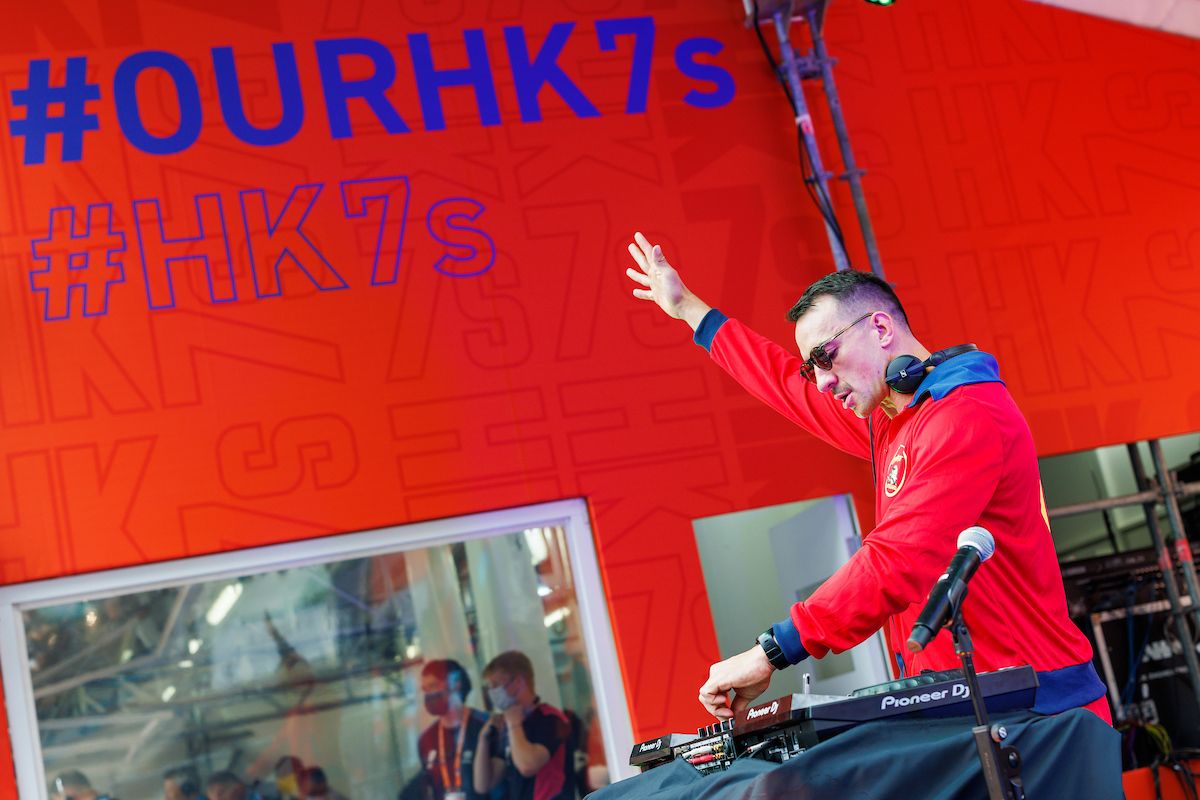
While Cullen is, without a doubt, not short of professional endeavors, his passion projects have also parlayed to impressive feats.
Take DJing, for example. “I just sort of threw myself into it when we started our [Got Balls?] event. We needed a DJ but needed more than just someone who could play music because of the structure of events … and I was like, ‘I'm just going to learn.’”
Fast forward a little over five years, and Cullen opened for the highly-anticipated Hong Kong Rugby Sevens in 2022 in front of tens of thousands. “I don't know if I want to say ‘dream come true’ because I can't say I ever dreamed of DJing … it's not like I was doing as a teenager … [but] it was an unbelievable experience to be in a 40,000-person stadium.”
Source: Hong Kong Sevens
Remember Rugbytots TV? A student’s parent, impressed by Cullen’s byte-sized rugby content, invited him to come onto a TV show. Today, you can find Cullen hosting a weekly weekend program on Hong Kong’s largest public broadcasting service – RTHK.
Despite the highs, though, Cullen’s feet stay firmly planted. Grounded by his unwavering commitment to himself and his personal development, he wants to be present and conscious of his entire journey. “I am going to spend all of 2023 sober,” he reveals. This commitment came after spending three extended patches sober, during which Cullen says it made him “... become a person that I really enjoy.”
“The reason I'm doing that is not because I have an alcohol problem,” Cullen explains. “It's because I really want to try and change the narrative around having a good time and alcohol and being able to pursue goals and have the best time and not feel like you need to drink.”
One thing Cullen is acutely aware of is the importance of impact. “Nothing I do is financially driven. But certainly, everything I do is driven by every single person having a good experience. Whether it's the kids coming to Rugbytots, or the staff working at Rugbytots and us having a good company culture, or people listening to my music … or people coming to our events, and we want them to leave and go, ‘That was unbelievable.’”
As a testament to this, when asked to introduce himself when he first sat down with us, instead of diving into his professional accomplishments and ventures, Cullen took a different approach.
“I am a happy person. I'm a friendly person. I'm a polite person, and I like having a good time. That has filtered down into my work and my day to day life and my company culture and my friendship groups.”

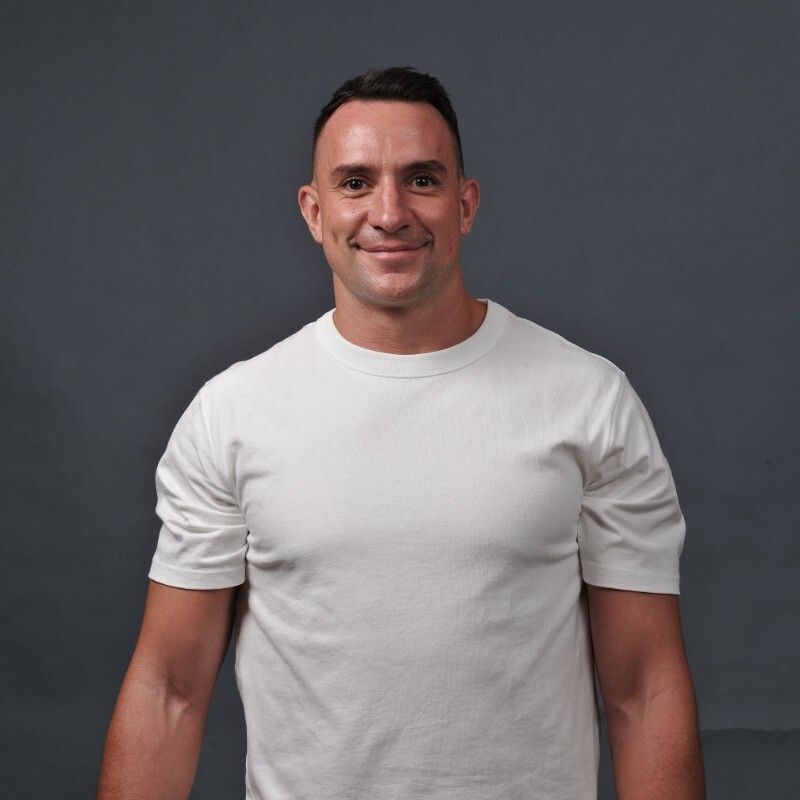



Comments ()